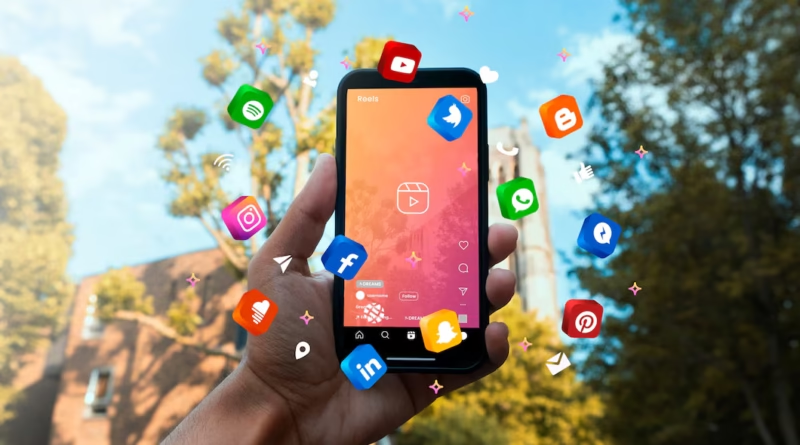How Social Media Influences Modern Society and Culture
In the digital age, social media has profoundly shaped modern society and culture in ways previously unimaginable. From the way we communicate and interact to how we perceive the world and form identities, social media has become an integral part of everyday life. What began as a tool for staying connected with friends and family has evolved into a global powerhouse that influences how we live, work, and engage with others.
This article delves into the many ways social media has impacted modern society and culture, from shifting communication patterns to reshaping political landscapes, consumer behavior, and even personal identities.
The Rise of Digital Communication
One of the most noticeable effects of social media on modern society is its transformation of communication. Platforms like Facebook, Twitter, Instagram, and WhatsApp have revolutionized how people interact with one another. Communication, which was once limited to phone calls, letters, or face-to-face meetings, has now become instantaneous and global. Social media platforms have made it easier for people to maintain long-distance relationships, reconnect with old friends, and form new social circles, regardless of geographic barriers.
The rise of social media has also altered language and communication styles. Emoticons, GIFs, memes, and hashtags are all new forms of expression that have become part of everyday communication. The popularity of short, concise messages — like Twitter’s character limit or Instagram’s photo captions — has contributed to an increasingly informal and visual way of communicating.
Changing How We Consume Information
Social media has disrupted traditional media outlets like television, newspapers, and radio. Today, news breaks on Twitter or Facebook long before it appears in print. With the rise of citizen journalism, anyone with a smartphone and an internet connection can report breaking news. This has democratized information, making it more accessible and allowing for a more diverse range of voices and perspectives to be heard.
However, the rapid spread of information on social media has also created challenges, particularly when it comes to misinformation and “fake news.” The ease with which content can go viral has led to the dissemination of both accurate and false information, sometimes with serious consequences. Social media platforms have been forced to grapple with how to control the spread of misinformation while maintaining freedom of speech.
Social Media and Political Influence
Social media has become a powerful tool for political campaigns and activism. In recent years, platforms like Twitter and Facebook have been used to mobilize political movements, organize protests, and promote political agendas. Hashtags such as #BlackLivesMatter, #MeToo, and #ClimateChange have gained worldwide traction, pushing important social issues to the forefront of public discourse.
Social media also allows politicians and political parties to engage directly with the electorate. Through tweets, posts, and live streams, politicians can communicate their messages to millions of people with the click of a button. This has led to a more interactive and immediate form of political engagement, although it has also raised concerns about misinformation, manipulation, and the role of social media in influencing elections.
Shaping Personal Identities and Self-Perception
Social media has dramatically impacted how individuals perceive themselves and how they present themselves to the world. Platforms like Instagram and Snapchat encourage users to craft a curated version of their lives, showcasing only the most flattering, glamorous, or exciting moments. This “highlight reel” mentality can lead to comparisons, dissatisfaction, and pressure to maintain a certain image.
The desire for likes, shares, and followers has fueled the rise of influencers — individuals who have cultivated large online followings and, in turn, have become role models for others. While some influencers use their platforms for positive change, others have been criticized for promoting unrealistic beauty standards, materialism, and consumerism.
Moreover, social media has also been a place for marginalized groups to form communities and express their identities. LGBTQ+ individuals, people of color, and other minority groups have found solidarity and support online, creating spaces for empowerment and advocacy that may not exist in traditional offline environments.
The Commercialization of Social Media
Social media platforms are also changing how businesses operate and how people consume products and services. With over 4.7 billion people using social media worldwide, it has become a prime space for marketing. Brands now use platforms like Instagram, Facebook, and TikTok to reach their target audiences, utilizing both paid ads and organic content.
Influencer marketing has emerged as a major business strategy, where influencers with large followings partner with companies to promote products. This has blurred the lines between personal and commercial content, making it harder for consumers to distinguish between genuine endorsements and paid promotions.
Furthermore, social media has altered consumer behavior. Reviews, recommendations, and social proof on platforms like Yelp, Amazon, or Instagram play a critical role in purchasing decisions. Social media not only allows people to shop directly through platforms like Instagram Shopping but also fosters trends like “viral” products and services that can make or break a brand.
7 FAQs About How Social Media Influences Modern Society and Culture
- How does social media affect personal relationships? Social media can strengthen personal relationships by enabling easier communication but can also cause issues like misunderstandings or jealousy due to constant sharing and online interactions.
- What role does social media play in modern activism? Social media plays a pivotal role in activism by providing platforms for organizing protests, raising awareness about social issues, and mobilizing supporters.
- How does social media affect mental health? While social media can help people feel connected, it can also lead to feelings of anxiety, depression, or low self-esteem due to comparisons, cyberbullying, or the pressure to maintain a perfect online persona.
- What impact does social media have on politics? Social media allows politicians to engage directly with voters, but it can also facilitate the spread of misinformation, influence elections, and give rise to political polarization.
- Why are influencers so influential? Influencers are seen as relatable figures who share personal experiences and promote products, often creating a sense of trust and connection with their followers.
- What is the role of social media in shaping consumer behavior? Social media has shifted consumer behavior by making it easier for people to discover new products, read reviews, and make purchasing decisions based on recommendations from influencers or peers.
- How has social media changed communication styles? Social media has led to a more informal, visual, and instantaneous form of communication, with people often using emojis, memes, and short messages instead of traditional methods.
Conclusion
Social media has undeniably changed modern society and culture, bringing about both positive and negative impacts. It has reshaped communication, created new opportunities for political engagement and activism, and transformed the way businesses operate. However, it has also raised concerns about mental health, misinformation, and the pressure to maintain curated online personas. As social media continues to evolve, it will be essential for individuals and society to navigate its complexities, harnessing its benefits while mitigating its drawbacks.
Key Takeaways
- Social media has transformed communication, making it instantaneous and global.
- It plays a significant role in shaping political movements, activism, and social change.
- Platforms like Instagram and TikTok influence personal identity and self-perception.
- Businesses have adapted to social media marketing, impacting consumer behavior and trends.
- While social media offers many benefits, it also presents challenges related to mental health, misinformation, and commercialization.

